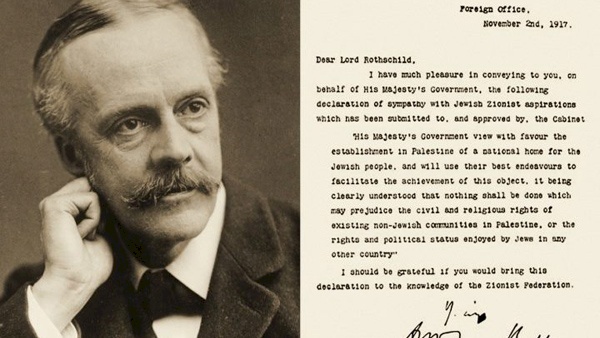
Commemoration of the Balfour Declaration in Argentina and Mali
SadaNews - The embassies of the State of Palestine in Argentina and Mali commemorated the 108th anniversary of the infamous Balfour Declaration by organizing a series of events.
In the Argentine capital, Buenos Aires, a cultural event was organized as part of the International Days of Palestinian Cinema, featuring the screening of the film "When I Saw You" by Palestinian director Annemarie Jacir, emphasizing the role of art in conveying the suffering of the Palestinian people and their struggle for freedom, in facing the occupation, settlement, and ongoing injustice for more than a century.
The film presented a human and poetic image through the eyes of a refugee child, reflecting the resilience of the Palestinians and their steadfastness in hope and collective determination for freedom, life, and the return to their homeland, with wide participation from cultural institutions around the world, including the Cinema for Palestine group - Argentina, LATINARAB.
The Acting Ambassador of the State of Palestine, First Counselor Riyad Halabi, emphasized the importance of Palestinian art as a front of resistance against attempts to obliterate national identity.
He explained that Palestinian cinema, with its human stories and live testimonies, represents one form of cultural and political struggle, embodying an ethical stance that expresses human dignity and the right to existence and freedom.
For his part, Christian Moro, director of CINE FERTIL and LATINARAB festival, addressed the importance of Palestinian cinema as a platform confronting false narratives and conveying the reality of what is happening in Palestine to the world, stressing that every Palestinian film is an act of cultural resistance that restores the Palestinian person’s voice and dignity, breaking the media siege imposed on them.
Moreover, Paula Martel, representative of "Cinema for Palestine - Argentina," highlighted the humanitarian role of cinema in spreading the Palestinian narrative and confronting oppression and settlement, asserting that the image can build global awareness of the Palestinian cause, and that supporting this type of cinema is a defense of human justice in the face of occupation and its racist policies.
The Embassy of the State of Palestine in the Republic of Mali also commemorated the infamous Balfour Declaration at its headquarters in the capital, Bamako, through the screening of the documentary film "Love Case," which covers the humanitarian and professional journey of Palestinian surgeon Dr. Ghassan Abu Sitta, one of the most distinguished doctors working in war surgery, directed by filmmakers Carol Mansour and Muna Khallidi, and produced by Forward Film Production in 2024 as part of the "International Days of Palestine Cinema," organized by the Film Lab - Palestine, in cooperation with the Ministry of Culture and the Ministry of Foreign Affairs and Expatriates, held annually in over sixty cities around the world to introduce the Palestinian cinematic creativity and convey the voice of Palestine to the international audience.
The film was screened for about ninety minutes, translated into French, and discussed Dr. Abu Sitta's experiences during forty-three days of the last Israeli war on Gaza, reviewing milestones of his scientific and humanitarian journey and his testimonies in previous wars, as well as the personal aspects that illuminated his relationships with his family and friends.
Following the screening, doctors Walid Abu Hatab and Mahmoud Al-Khizandar, who currently work in a hospital in Bamako, spoke about their experiences working inside hospitals in Gaza during the recent war and previous wars, recalling the humanitarian tragedies they lived and the suffering of the wounded and civilians under siege and aggression.
Ambassador Hassan Al-Balawi pointed out the significance of the Balfour Declaration commemoration not only as a historical event that established the Palestinian tragedy but as a continuous station in the Palestinian struggle for justice, dignity, and identity.
He stressed that organizing this screening, despite the difficulties faced by Mali, is an expression of Palestinian solidarity with the brotherly Malian people who are also facing significant economic and security challenges.

High-level sources reveal to SadaNews: Washington seeks to hold a Gaza Reconstruction Conf...

Hebrew Channels: Israel Prepared for Iran to Initiate Attack and Continues Its Readiness

Officials: The United States Approves the Establishment of an Official Communication Chann...

دراسة: عدد شهداء غزة في بداية الحرب أعلى بكثير من المعلن رسمياً

Trump Will Announce Tomorrow the Allocation of Funds for the Peace Council, and Israel Dec...

Friedman: Netanyahu Deceives Trump and American Jews Again

Vatican Slaps Trump Initiative.. Pope Refuses to Join the 'Peace Council'

